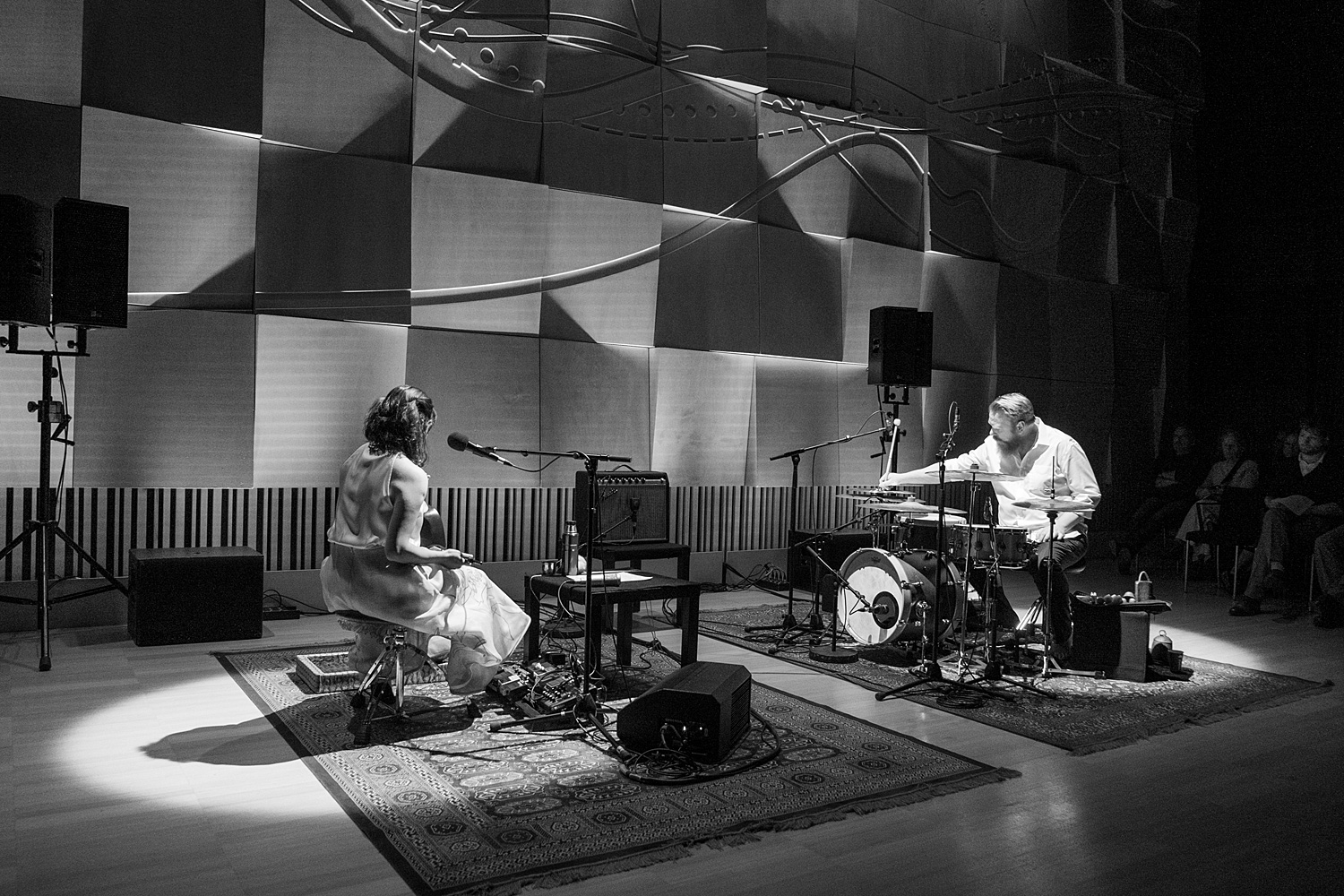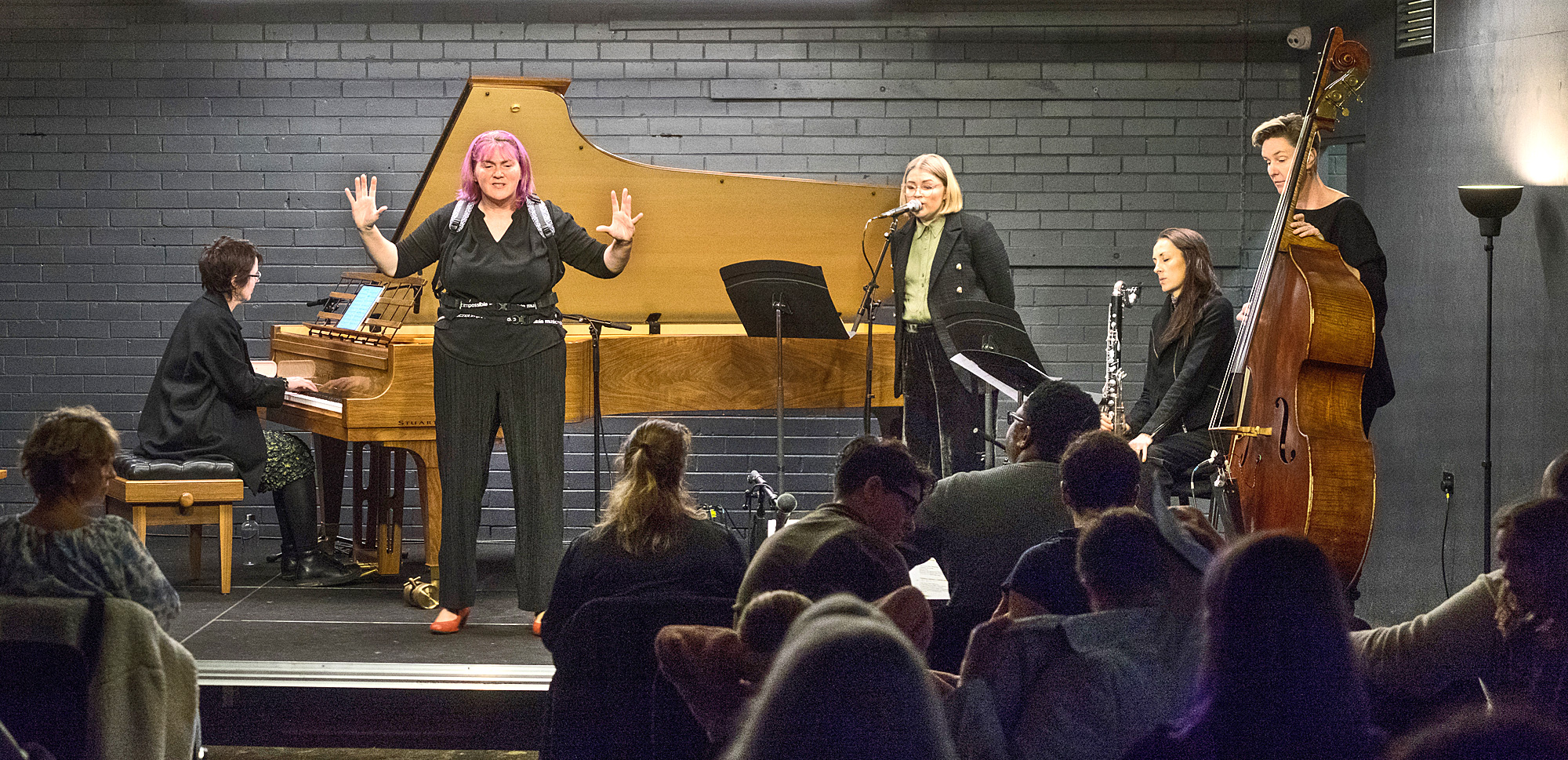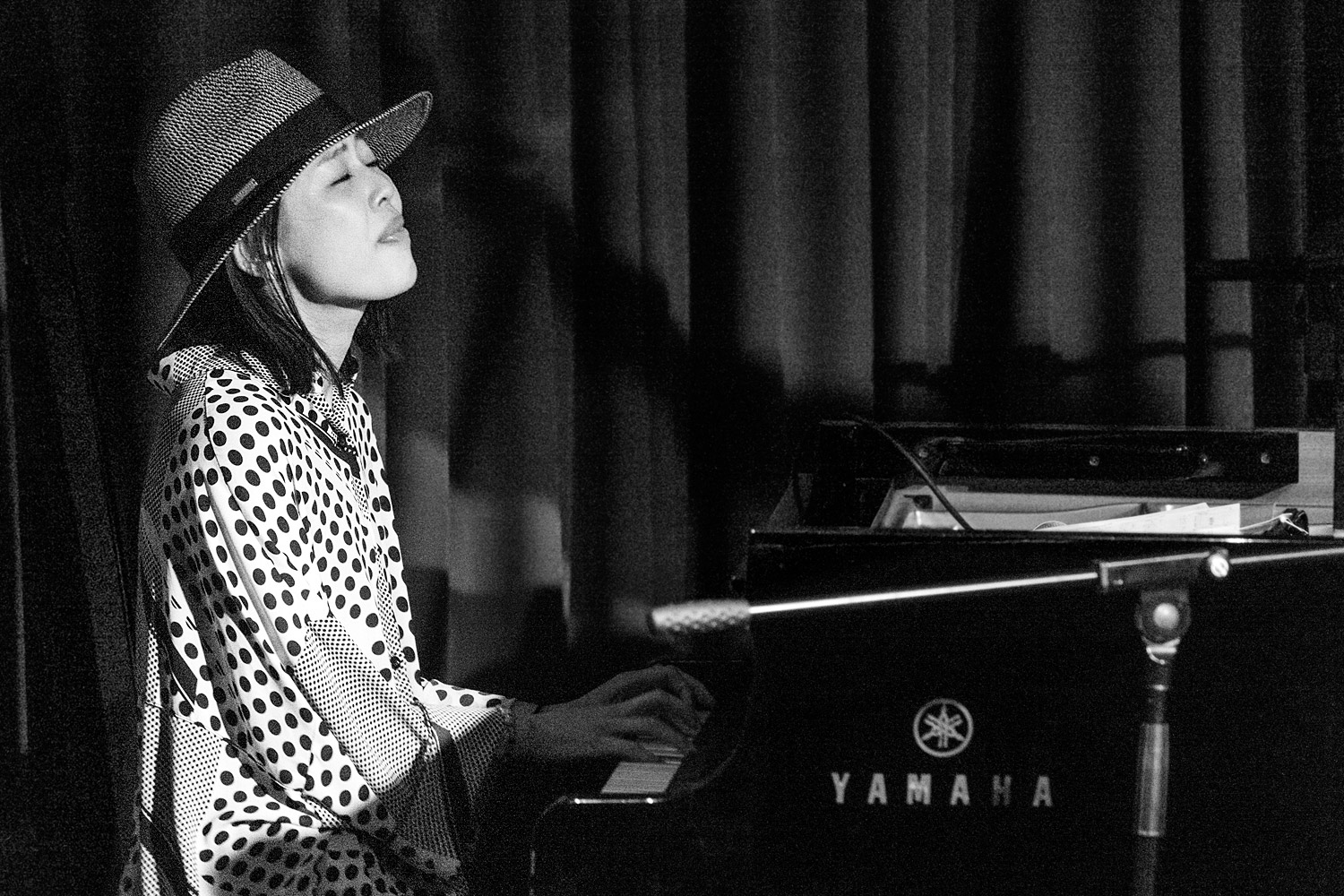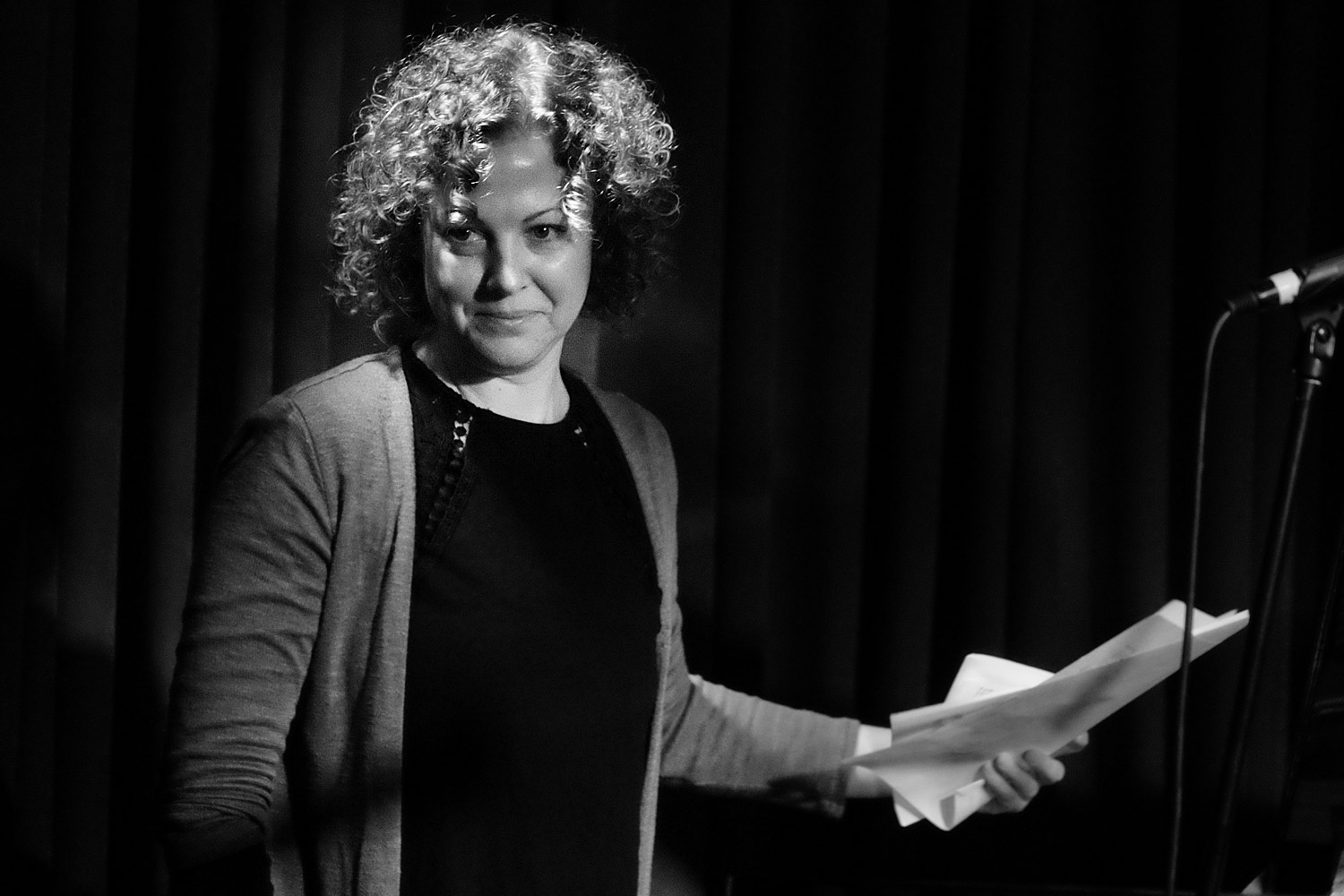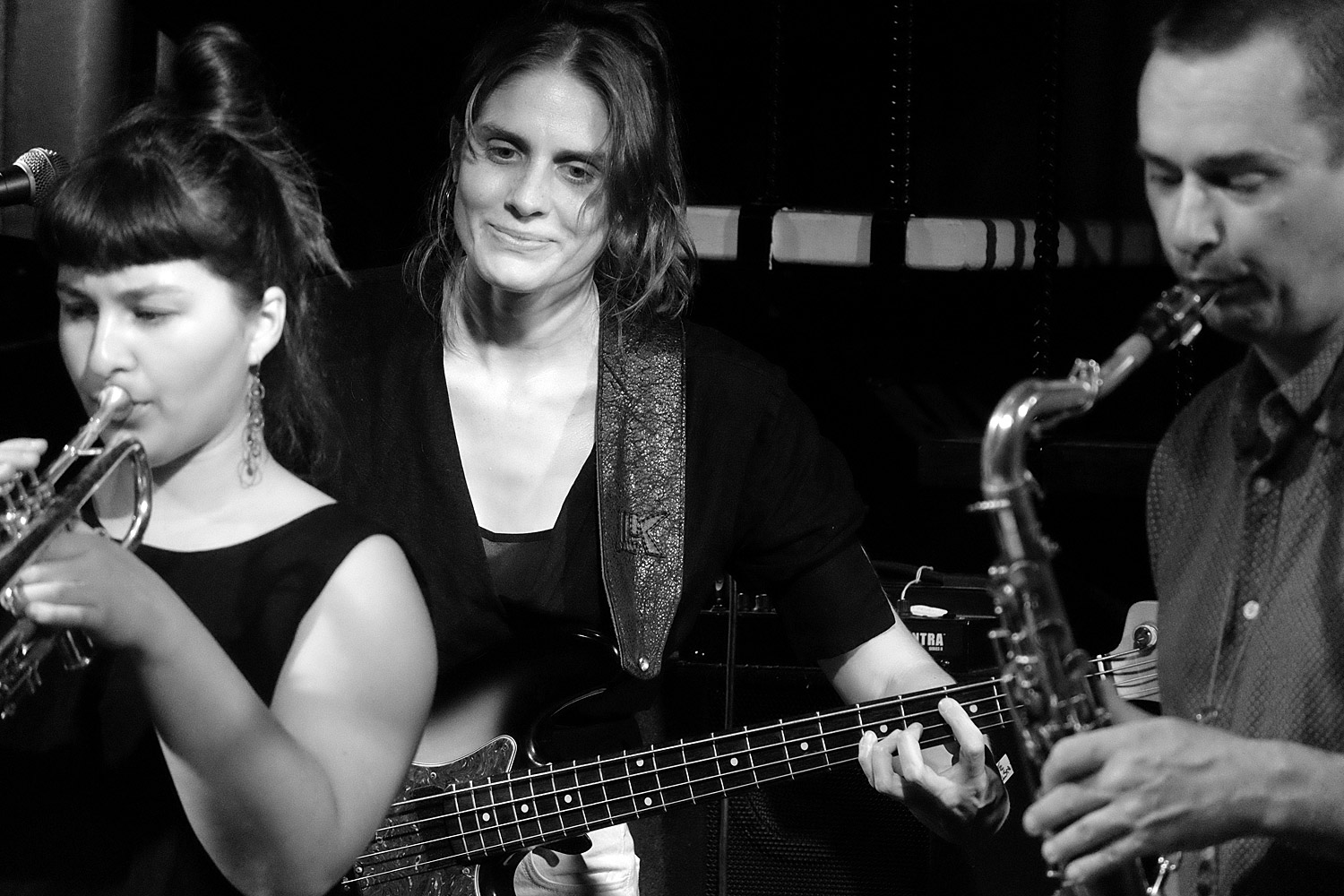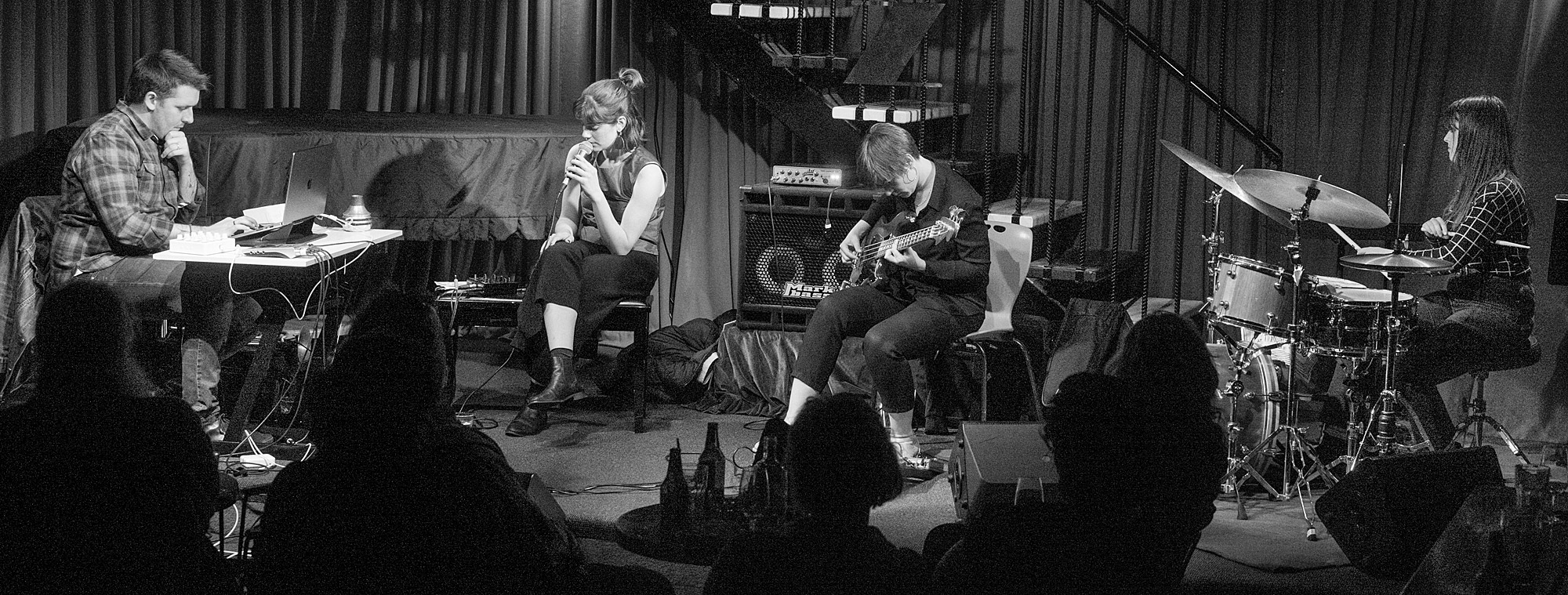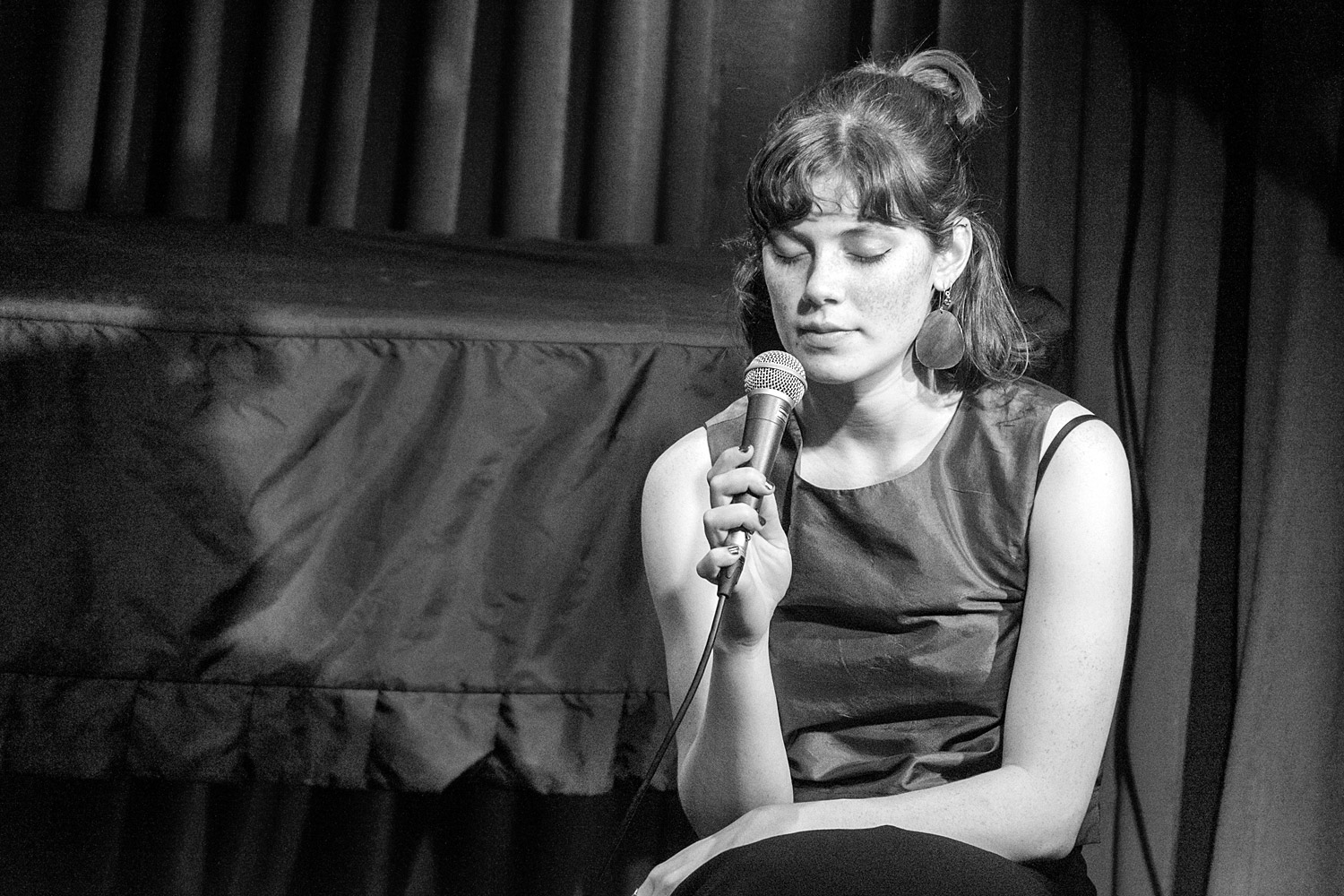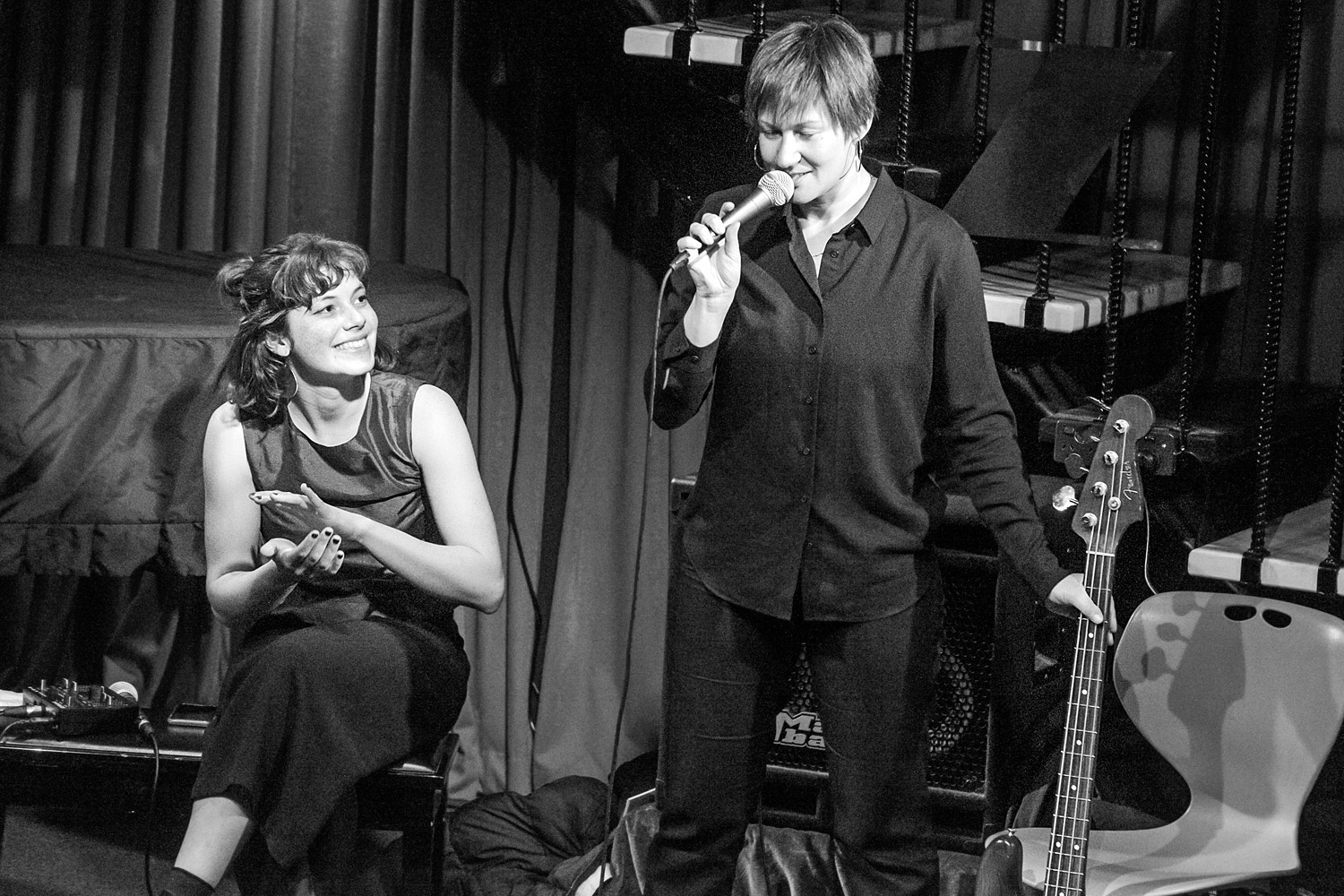
REVIEW
Melbourne Women’s International Jazz Festival
3 – 10 December 2023
The Jazzlab
Synchronicity – it turns out on checking the definition – was the wrong word to sum up outings in this year’s MWIJF, though that initially came into my addled brain.
A better word may be reciprocity, but more of that later.




Images Roger Mitchell)
Synchronicity – “a simultaneous occurrence of events that appear related but have no causal connection” – arguably did apply to one composition played on the festival opening night when Aura – Audrey Powne trumpet, Flora Carbo alto saxophone, Helen Svoboda double bass and Kyrie Anderson drums – launched their second album, Same Sky.
Bassist Helen Svoboda’s piece Baby Horse was created by splitting the band in half, each pair of players coming up with material separately before the two halves were combined once all four were in the same room. The result was fun.
There was a lightness and sense of abandon to this outing by Aura that possibly reflected their second album being recorded in one day at Audrey Studios in Brunswick within a limited window of time before separate international tours and artist residencies in 2023.
Highlights were Powne’s bent horn notes mingled with Carbo’s alto sax explorations in Inertia (Anderson), the abstractions of Penultimate Premiere (Carbo) and the defiant celebration evident in Snails Out Paced (Powne).
Reciprocity – or mutual interaction, collaboration, attentive listening and responding – was evident throughout the concerts of this festival, ably put together by Sonja Horbelt and dedicated to the memory of Lynette Irwin, artistic director 2003-2022.



Before Aura’s launch on Sunday 3 December, recent VCA graduate Maeve Grieve (vocals, guitar) joined a movable feast of players – this was not a set and forget ensemble. I particularly loved the contributions of Sarah Anderson on violin and Noah James on mandolin. There was a lot of attentive listening in the group performing with Grieve, who was this year’s recipient of the 2023 New Frontiers award given to a leading graduating female / non-binary final-year jazz improvisation student at the Melbourne Conservatorium of Music.
The second evening of the festival brought two engrossing concerts. In a duo entitled ZÖJ – meaning a matched set – Gelareh Pour on vocals, kamancheh and qeychak teamed with Brian O’Dwyer on drums and percussion to launch their album Fil O Fenjoon.
The album’s title translates from Farsi as Elephant and Teacup – outwardly contrasting yet inseparable – which aptly describes Pour and O’Dwyer. Pour’s extraordinary voice often seemed to convey deep sadness or angst over oppression in her native Iran, yet that was not always the message. One song, My Empty Boat, was a love song from an oyster to a pearl – nonetheless still a poetic lament. O’Dwyer’s contributions were entirely apt, entering this finely honed yet improvised musical discourse only with immaculate precision.
The second concert of the Monday double bill, entitled Across Silence: The Art of Music, Auslan and Haptics, offered audience members as well as artists the opportunity to experience music in an innovative and revelatory way via haptic vests, rather than aurally. Actor Marnie Kerridge and poet Walter Kadiki – both deaf – used Auslan to sign poetry that was accompanied by music and interpreted by Amber Richardson for hearing patrons.
Performed previously at Tempo Rubato and featuring musicians Andrea Keller (composer, arranger, piano), Gian Slater (voice), Natasha Fearnside (clarinets) and Kylie Davies (double bass), this adventurous work was once again utterly compelling and an exemplary exploration of the ways in which music can be experienced.
Again this year the MWIJF provided an opportunity for tertiary-level students to play alongside and under the direction of seasoned musicians.
I missed two student ensembles from Monash University on Tuesday 5 December performing with Monique di Mattina on piano and Cat Canteri on drums.
But on the following night saxophonist, band leader and composer Angela Davis directed the 13-piece MWIJF Little Big Band featuring students from Monash University, Box Hill TAFE and the Melbourne Conservatorium of Music, with guest artist Ellie Lamb on trombone. This opening set was a tight, spirited performance including pieces by Charlie Parker and expatriate Australians Nadje Noordhuis and Steve Newcomb.




The second set provided an embodiment of mutual understanding when vocalist, composer and arranger Mim Crellin joined Danish guitarist Morten Duun in a quintet that brimmed with empathy.
Duun’s attentive, responsive guitar work combined exquisitely with Crellin’s clearly articulated, pure vocals as the ensemble – with Flora Carbo woodwinds, Sam Anning bass and Kyrie Anderson drums – previewed pieces from a coming EP and dipped into the album All Our Little Boxes. This was a fitting final performance before Crellin returned overseas.

On the festival’s first concert of the closing night double bill, vocalist Teri Roiger and husband, bassist John Menegon, joined Hugh Stuckey on guitar and Ronny Ferella on drums in celebrating the music of Abbey Lincoln.
Roiger described Lincoln as “a force of nature, almost like Bob Dylan, but with a jazz sensibility”. The longstanding collaboration between Roiger and Menegon, along with the vocalist’s affection for her material, made for an engaging set, well complemented by the work of Stuckey and Ferella – I have rarely seen the drummer so at ease.






The closing MWIJF concert, Peggy Lee’s Open Thread, was a ripper – an excellent example of what glorious mayhem can result when four musicians come together and jell.
At the start of 2023, Vancouver-based cellist Lee invited saxophonist Julien Wilson and guitarist Theo Carbo to form a new ensemble, Open Thread, joined by drummer and fellow Canadian Dylan van der Schyff.
This outing had lots to love, with lower register saxophone musings, deep bowed “bass” (the cello) and scatterings of sticks and other percussive delights from the drum kit. Alister Spence’s work came to mind as Open Thread explored textures and timbres, delicate staccato and delightful abstractions. Theo’s Piece was like a slowly devoured chocolate brownie with a topping of light frenzy. A newish composition, entitled A Walk in the Rain, was a wonderful way to end this festival.
ROGER MITCHELL
Note: A beekeeping commitment meant that I missed hearing the launch of Monash Art Ensemble recordings of Cheryl Durongpisitkul’s A Pinky Promise and Andrea Keller’s Circuit Breaker, along with an opening set by the Sasha Gavlek Quartet, on Thursday 7 December. Gavlek , from Tasmania, was awarded a recording session with Myles Mumford at Rolling Stock Studios, so she will have to return to take up that offer.


